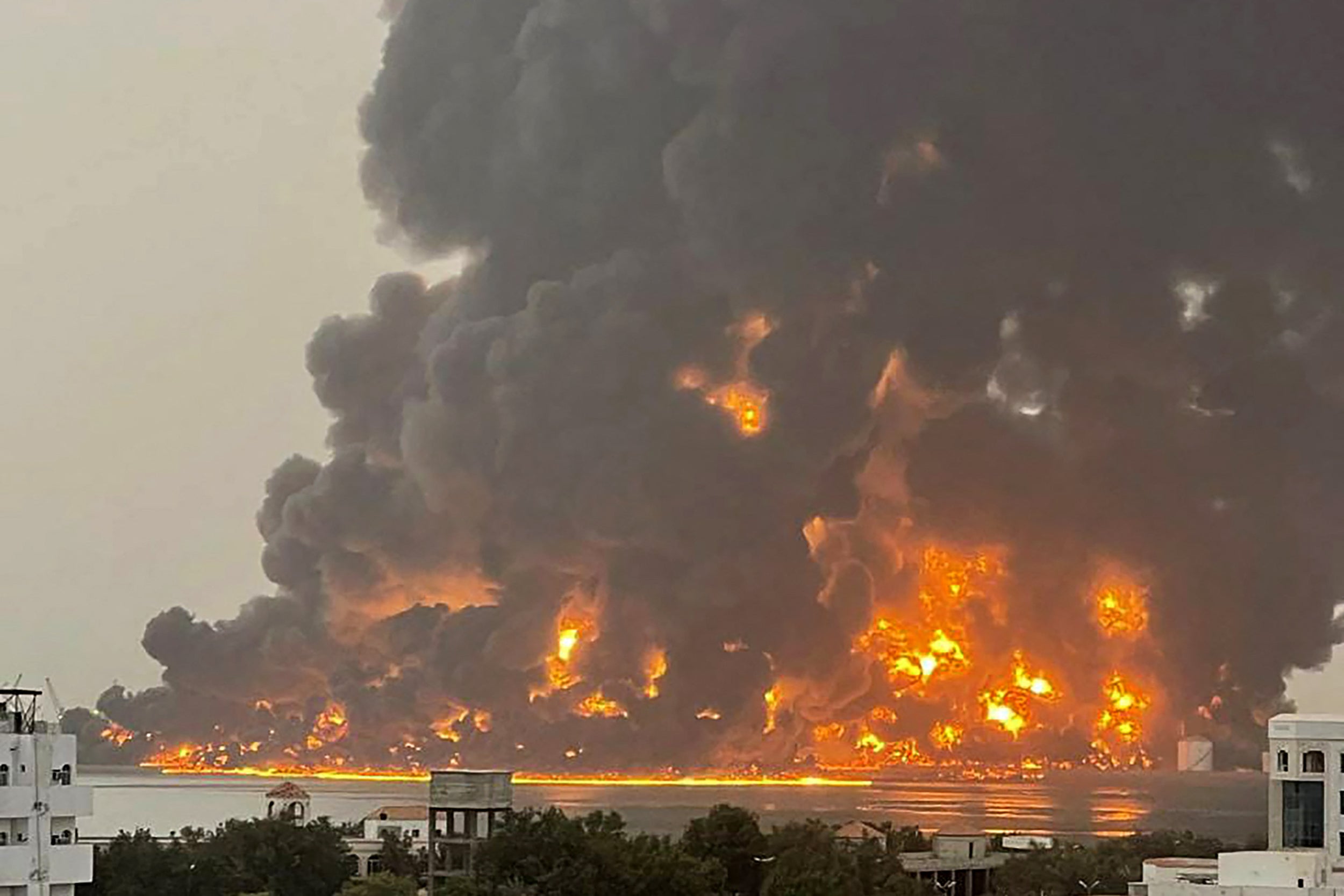Israel shoots down missile from Yemen after military targets Houthis with strikes
Israel, along with the US, Britain and other Western allies with forces in the region, have intercepted almost all of the Houthi missiles and drones

Your support helps us to tell the story
From reproductive rights to climate change to Big Tech, The Independent is on the ground when the story is developing. Whether it's investigating the financials of Elon Musk's pro-Trump PAC or producing our latest documentary, 'The A Word', which shines a light on the American women fighting for reproductive rights, we know how important it is to parse out the facts from the messaging.
At such a critical moment in US history, we need reporters on the ground. Your donation allows us to keep sending journalists to speak to both sides of the story.
The Independent is trusted by Americans across the entire political spectrum. And unlike many other quality news outlets, we choose not to lock Americans out of our reporting and analysis with paywalls. We believe quality journalism should be available to everyone, paid for by those who can afford it.
Your support makes all the difference.The Israeli military has said it intercepted a missile fired from Yemen, hours after Israeli warplanes struck several Houthi targets in the country.
The Israeli airstrikes – in response to a deadly Houthi drone strike on Tel Aviv – mark the first time Israel is known to have responded to repeated Houthi attacks throughout its nine-month war against Hamas in Gaza.
The burst of violence between the distant enemies has threatened to open a new front as Israel battles a series of Iranian proxies across the region.
The Israeli army late on Saturday confirmed the air strikes on the western Yemeni port city of Hodeidah, a Houthi stronghold.
It said the strikes, carried out by US-made F-15 and F-35 warplanes, were a response to hundreds of Houthi attacks.
Israel, along with the US, Britain and other Western allies with forces in the region, have intercepted almost all of the Houthi missiles and drones. But early on Friday, a Houthi drone penetrated Israel’s air defences and crashed into Tel Aviv, Israel’s commercial and cultural capital, killing one person.
The Israeli military said Saturday’s air strikes, some 1,000 miles from Israel, were among the most complicated and longest-distance operations by its air force. It said it hit the port because it is used to deliver Iranian arms to Yemen.
The Ministry of Health in Sanaa said a number of people were killed and at least 80 people were injured, most of them with severe burns, in a preliminary toll of the strikes in Hodeidah. The Israeli attack started a massive fire in the city's port.
Israel’s defence minister Yoav Gallant said: “The fire that is burning now in Hodeidah is seen across the Middle East and the significance is clear.”
He vowed to carry out similar strikes “in any place where it may be required”.
On Sunday, the Israeli military said the surface-to-surface missile fired from Yemen was intercepted before reaching Israeli territory.
The Houthis will continue to attack Israel and will not abide by any rules of engagement, spokesperson Mohammed Abdulsalam told Qatar’s Al Jazeera TV on Sunday. Abdulsalam said there would be “no red lines” in the Houthis’ response to Israel. “All sensitive institutions with all its levels will be a target for us,” he said.
The Houthis are among several Tehran-backed groups to have attacked Israel in solidarity with Hamas since the 7 October attack inside Israel that triggered the war in Gaza. More than 1,100 people were killed in that Hamas attack, with another 251 taken hostage. Around 39,000 people have been killed in Gaza by the Israeli offensive that has followed, according to health officials in the Hamas-run territory.
In addition to the war in Gaza, the Israeli military has been engaged in daily clashes with the Hezbollah militant group in Lebanon. These clashes have raised concerns that the fighting could spill over into a full-blown war with Lebanon and beyond.
The port of Hodeidah is a gateway for supplies into Yemen, which has been engulfed in civil war since 2014, when the Houthis seized much of northern Yemen and forced the internationally recognised government to flee from Sanaa. A Saudi-led coalition intervened the following year in support of government forces, and in time the conflict turned into a proxy war between Saudi Arabia and Iran.
More than 150,000 people have died in the war, including fighters and civilians, and it has led to one of the world’s worst humanitarian disasters.
Mr Abdulsalam posted on X (formerly Twitter) that “blatant Israeli aggression” targeted fuel storage facilities and the province’s power station. He said the attacks aim “to increase the suffering of the people and to pressure Yemen to stop supporting Gaza”.
AP
Join our commenting forum
Join thought-provoking conversations, follow other Independent readers and see their replies
Comments